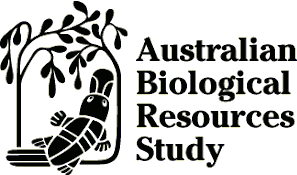Australian Tropical Rainforest Plants - Online edition
Coleus australis (R.Br.) A.J.Paton
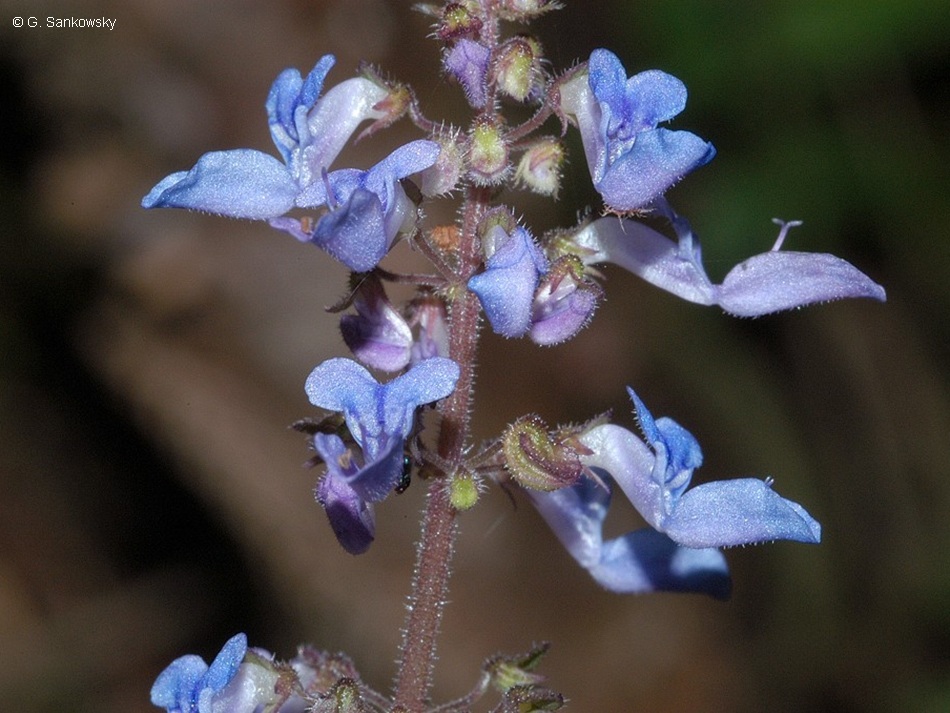
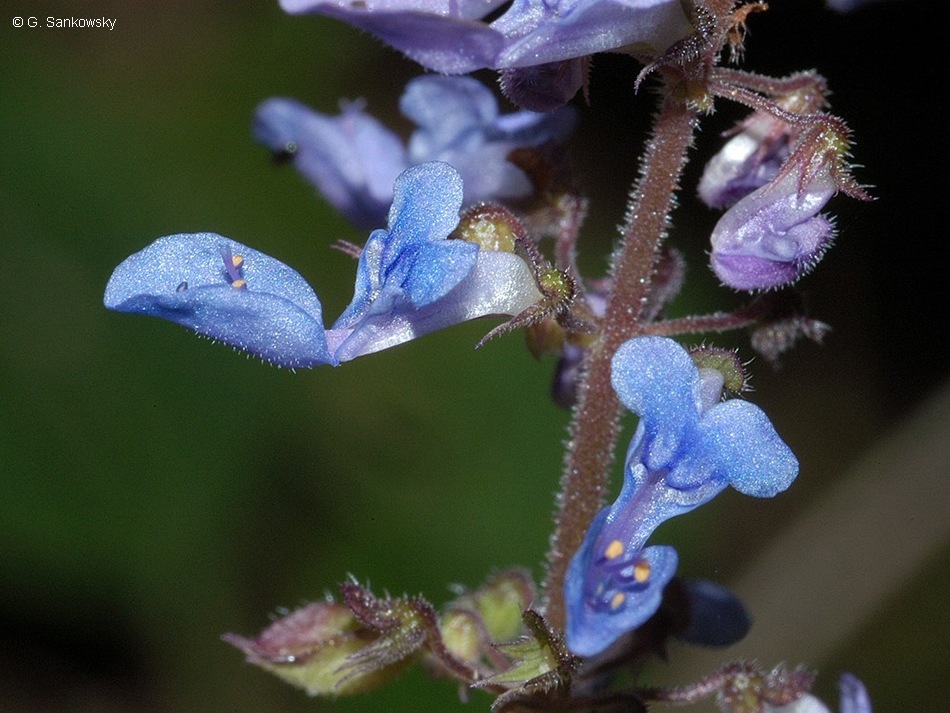

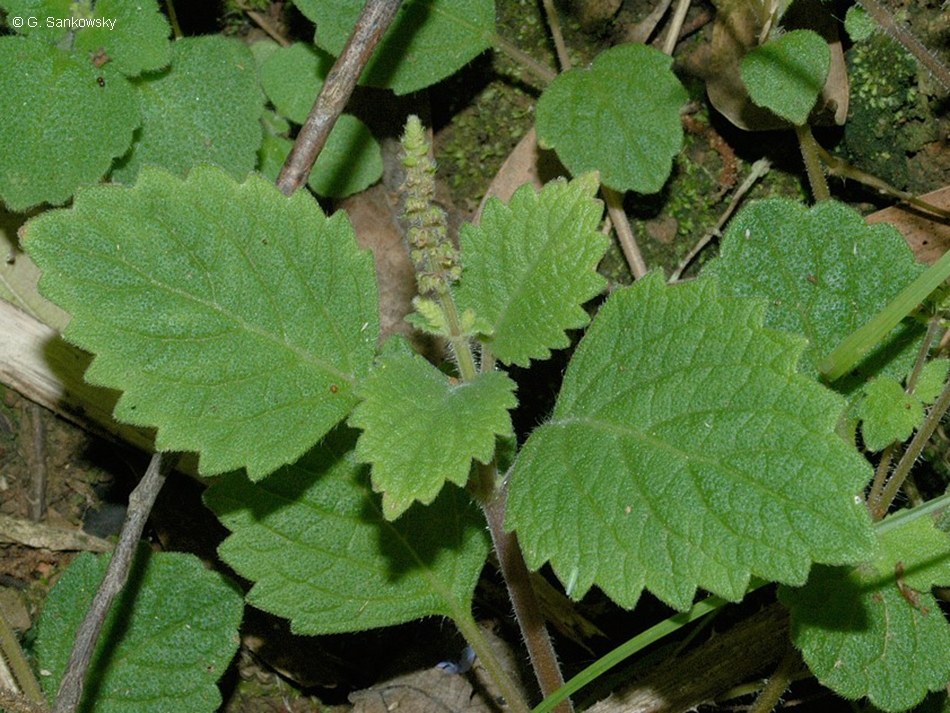
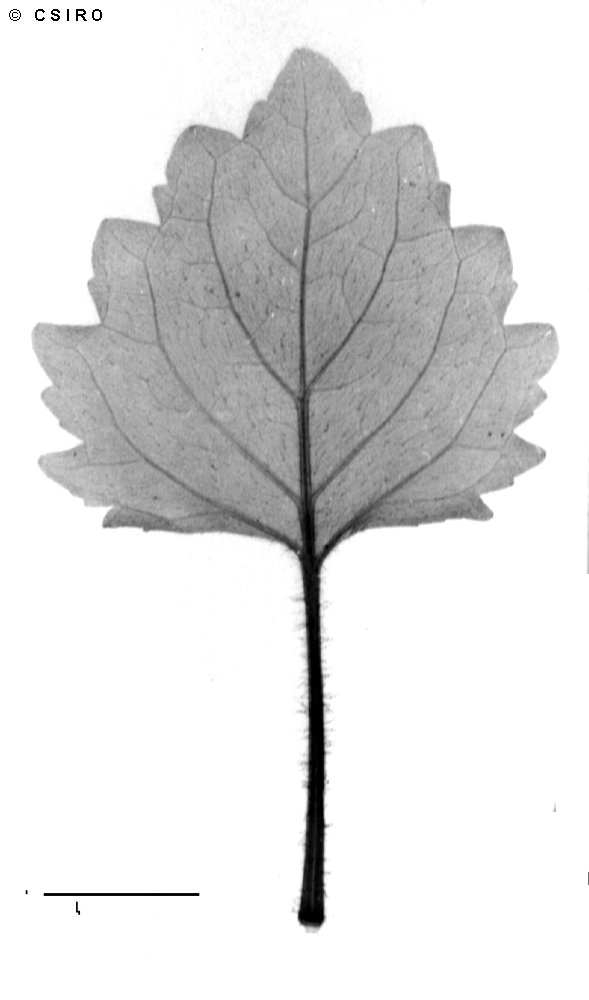

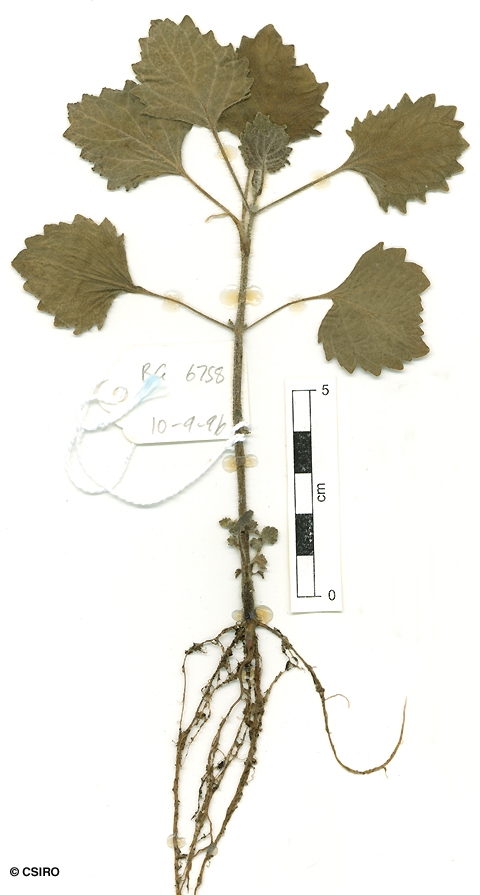
Paton, A.J. et al (2019) Phytokeys 129: 21-22.
Coleus, Native; Cockspur Flower; Spurflower, Little; Little Spurflower; Native Coleus
Occasionally flowers and fruits as a shrub about 1m tall but usually flowers when much smaller. Usually develops a tuberous base.
Leaf blades about 0.8-3.2 x 0.6-3.6 cm, petioles about 0.6-2 cm long. Both the upper and lower surfaces of the leaf blade clothed in pale multicellular hairs. Reddish, sessile, globular glands present on the lower surface of the leaf blade. Crushed leaves and twigs emit a strong sweet odour like that of lantana (Lantana camara).
Inflorescence about 30 cm long or longer. Flowers about 4-5 mm diam., arranged in whorls of six, pedicels hairy, about 2 mm long. Calyx 5-lobed, clothed in long erect white hairs and reddish-orange glands. Calyx lobes about 2 mm long. Corolla tube about 4 mm long, 2-lipped, upper corolla lip 4-lobed. each lobe about 1.5-2 mm long, lower corolla lip about 4.5 x 3 mm. Corolla clothed in hairs and reddish-orange globular glands on the outer surface. Anther filaments about 4-5 mm long, anthers globular, less than 0.5 mm diam. Style about 6.5 mm long, not exceeding the stamens, stigma 2-lobed.
Fruiting calyx about 3.7-5 mm long, clothed in sessile reddish glands. Nutlets orbicular, about 0.8-1 mm diam. Cotyledons cordate or almost orbicular.
Cotyledons reniform, wider than long, about 5-6 x 8-10 mm, both the upper and lower surfaces clothed in scattered short hairs. First pair of true leaves cordate with 2 or 3 teeth on each side. At the tenth leaf stage: leaf blade +/- broadly triangular, both the upper and lower surfaces clothed in pale, multicellular hairs. Lower surface clothed in numerous orange, sessile glands. Lateral veins and reticulate veins depressed on the upper surface of the leaf blade. Margin with about 6-8 crenate teeth on each side. Leaves very aromatic when crushed. Stem clothed in numerous pale, erect, multicellular hairs. Seed germination time 13 to 105 days.
Occurs in CYP, NEQ, CEQ and southwards as far as New South Wales and Victoria. Altitudinal range in NEQ from near sea level to 1200 m. Grows in a variety of habitats, frequently in open forest but also in rocky areas in rain forest and monsoon forest. Also occurs in Hawaii.
This species was used by Aborigines of the Robertson River in north Queensland in treating syphilitic sores, using either an infusion as a wash or the leaves as a poultice. Cribb (1981).
Plectranthus australis R.Br., Prodromus florae Novae Hollandiae (1810): 506. Lectotype: New South Wales, Port Jackson, 17 May, 1802, R. Brown (lectotype: BM; isolectotypes: BRI, K, designated by Blake (1971)). Plectranthus parviflorus Willd., Hortus Berolinensis 1 : t. 6 (1806). Type: not cited). [given by S.T.Blake, Contr. Queensland Herb. 9 (1971) 35 as plant cultivated in Berlin of unknown origin, Hb. Willdenow 11078 (B).




